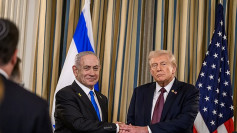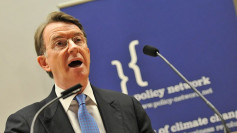Prince Andrew's standoff with King Charles III over his residence at Royal Lodge has deepened into a defining test of the monarch's authority, revealing persistent tensions within the royal family and exposing what palace insiders describe as a blind spot in managing Andrew's post-scandal future.
The Duke of York, who has lived in the 30-room mansion in Windsor Great Park since 2003, is resisting calls to vacate the property despite months of pressure from Buckingham Palace. Royal aides say the King wants to streamline royal property holdings and signal a more cost-conscious monarchy, while Andrew continues to seek what officials privately describe as an "unrealistic" housing and financial arrangement.
According to the BBC, negotiations between the two brothers have grown increasingly strained in recent weeks. Palace sources told British media that Andrew has refused to leave the residence unless granted an extensive exit package that includes alternative accommodations and compensation.
The Royal Lodge, held under a long-term Crown Estate lease, reportedly cost Andrew £1 million upfront with a nominal annual rent. Though the arrangement was legal, critics argue it symbolizes the Duke's inability to recognize his diminished royal role after being stripped of public duties in 2022 over his association with convicted sex offender Jeffrey Epstein.
Officials say Andrew has sought not one but two new homes as part of the talks. He has allegedly requested both Frogmore Cottage - previously occupied by Prince Harry and Meghan Markle - and Adelaide Cottage, where the Prince and Princess of Wales reside, for the use of his ex-wife, Sarah Ferguson. He is also said to be demanding financial compensation should he be removed from Royal Lodge altogether.
The Duke has already rejected an offer to move into Frogmore Cottage, a decision that insiders say infuriated the King. The property, viewed by aides as a fair compromise, was returned to the Crown Estate after Harry and Meghan relocated to the United States. Andrew's refusal, according to one royal source cited in The Times, has turned what began as a private negotiation into a "palace headache" for King Charles.
Behind the scenes, advisers view the dispute as more than a domestic issue. Palace watchers say it reflects a broader test of the King's authority as he works to implement his modernization agenda, which aims to reduce royal residences and cut taxpayer costs. Analysts note that the outcome will likely determine how far Charles can go in enforcing reforms within his own family.






